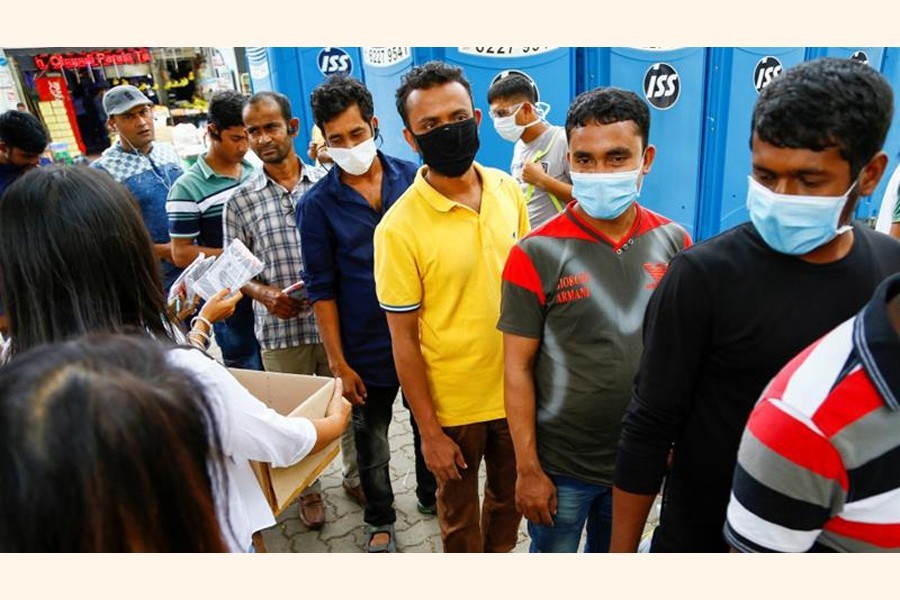The amount of unreserved appreciation that migrant wage-earners often receive from relevant quarters does hardly match the attention they get when in need. Consider, for example, the condition of the pandemic-affected returnee migrant workers now left stranded at home. The reasons include expiry of visa, loss of job, inability to bear return cost or sickness. A survey conducted between March and December, 2020 showed that a large majority (87.5 per cent) of them did not receive any aid or relief from the government. Evidently, the mechanism through which the government delivered the succour to the vulnerable groups simply failed to include the migrant workers and their dependants thus leaving them high and dry. Since the pandemic, far from receding, has been raging on unabated and getting worse, it is not hard to imagine what the stranded wage-earners and their families have been going through during these long lean months! Actually, the survey has shown, only 6.0 per cent of these workers have got any help whatsoever and that too from non-government sources. This is no doubt unfortunate!
As such, the government should be alert this time. Especially, the government would be required to make sure that these migrant wage-earners in limbo are not excluded from its financial aid for the vulnerable groups as pledged in the budget for FY 2021-22. But the issue of helping out these expatriate workers now facing hardship cannot be expected to be resolved through such short-term emergency handouts alone. To be fair, they deserve better. In fact, those not willing to return to their previous workplace (31 per cent of those surveyed) will have to be reintegrated in society. For the purpose, a long-term programme would be required whereby they could be trained in various skills to turn into good savers, investors and entrepreneurs. That would be necessary, because, as it came out from the survey, 68 per cent of respondents have no saving habit as such. They spent their entire remittance earnings just to meet their regular consumption needs such as food, healthcare, children's education, etc. Only 48 per cent among them could make some investments, but that too in non-productive sectors such as building house, purchasing land, etc. And, only a handful of them (4.0 per cent) were found to have invested in small local business.
In fact, the returnee migrant workers in question are low-skill workers. Therefore, they should be given skill training to build their capacity so they may undertake self-employment schemes. In this context, the central bank needs to ensure that loans from the commercial banks are cheaper, conditions easier and the documentation simpler for the clients from among the migrant workers. The Probashi Kalyan Bank (PKB), in particular, should be more proactive than it claims itself to be by making its funds more accessible to the migrant workers and extending all necessary support to them in such difficult times.
The government, on its part, should consider allocating special funds for the welfare of the expatriate workers. Obviously, this arrangement should be over and above what is already in existence in the form of the wage-earners' welfare fund. Adequate financial backing from the state will enable the families of the migrant workers to invest more in their children's education. And that would be the best way to reward them for the immense service they have been rendering to the nation through their remittance money.


